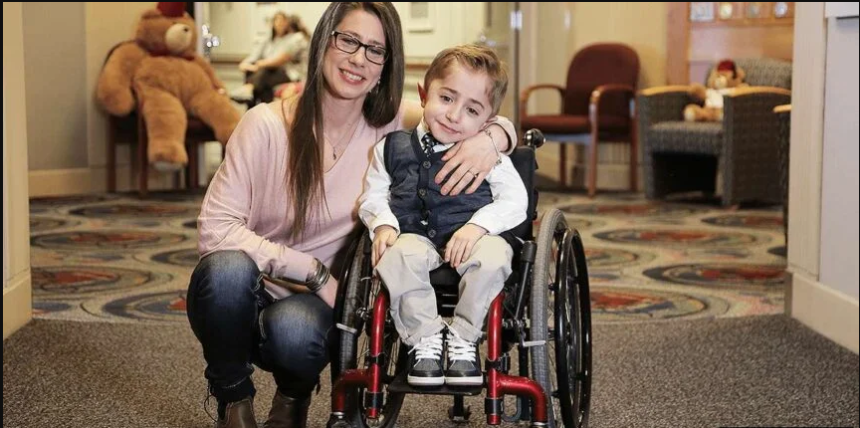do alec and kaleb get paid for commercials and Kaleb Wolf have become well-known figures through their appearances in commercials for Shriners Hospitals for Children. These two inspiring young men share their personal stories of resilience, encouraging viewers to support the hospital’s mission. But a question often arises: do Alec and Kaleb get paid for their work in these commercials? Understanding their roles and compensation is essential for grasping the broader implications of their participation in these advertisements.
Table of Contents
In this article, we will explore who do alec and kaleb get paid for commercials are, the nature of their involvement in commercials, the factors influencing their compensation, and the ethical considerations surrounding child actors in advertising. By delving into these topics, we aim to provide a comprehensive understanding of their impact and the financial aspects of their work.
Who Are do alec and kaleb get paid for commercials?
do alec and kaleb get paid for commercials Wolf are two remarkable young men who have captured the hearts of many through their roles in commercials for Shriners Hospitals for Children. Both boys are not only patients of the hospital but also ambassadors who share their personal journeys of overcoming medical challenges. Alec was born with osteogenesis imperfecta, a condition that makes bones extremely fragile. He has undergone numerous surgeries and treatments at Shriners, receiving care since he was just two months old. His charisma and ability to connect with audiences make him a beloved figure, inspiring many with his positive outlook on life.
Kaleb, on the other hand, has faced similar do alec and kaleb get paid for commercials, also being diagnosed with osteogenesis imperfecta. His journey includes over 200 broken bones and multiple surgeries, yet he has maintained an infectious spirit that resonates with viewers. Both boys have become powerful advocates for the hospital, using their experiences to highlight the importance of medical care for children. Their stories are not just about their struggles; they symbolize hope and resilience, encouraging many to support the mission of Shriners Hospitals
Their popularity has surged on social media, where they share their experiences and engage with millions of followers. This extensive reach has made them significant figures in the realm of influencer marketing, where their personal narratives contribute to raising awareness about health issues and encouraging donations to the hospital. Their genuine connection with the audience is a major factor in the effectiveness of the commercials they appear in
Understanding Influencer Marketing
Influencer marketing has transformed the way brands connect with audiences. It leverages the trust that individuals have in influencers like do alec and kaleb get paid for commercials, who have cultivated strong relationships with their followers. This marketing strategy allows brands to reach potential customers in a more authentic way compared to traditional advertising methods. Alec and Kaleb’s roles as influencers not only highlight their personal stories but also align with the values of the brands they promote, especially Shriners Hospitals for Children.
In the case of do alec and kaleb get paid for commercials, their participation in commercials serves a dual purpose: promoting the hospital and showcasing their resilience. This blend of personal storytelling and brand messaging resonates deeply with viewers, fostering a sense of community and support. As they share their challenges and triumphs, they invite audiences to engage with the mission of Shriners Hospitals, creating a powerful narrative that encourages contributions to help other children in need
The rise of social media platforms has also amplified the influence of personalities like do alec and kaleb get paid for commercials. With millions of followers across TikTok, Instagram, and YouTube, their reach allows them to connect with diverse audiences. This is particularly significant for organizations like Shriners Hospitals, which rely on public support to continue their vital work. By utilizing influencer marketing, these organizations can effectively raise awareness and drive donations, making it a crucial component of their overall strategy
Do Alec and Kaleb Get Paid for Commercials?
The question of whether do alec and kaleb get paid for commercials get paid for their appearances in commercials has garnered considerable attention. The answer is yes; Alec and Kaleb do receive compensation for their work. Like many child actors, their earnings are based on industry standards that govern payments for performances in commercials. This compensation is vital not only for recognizing their contributions but also for ensuring their financial stability in the future.
While exact figures regarding their earnings are not publicly disclosed, estimates suggest that do alec and kaleb get paid for commercials likely earn tens of thousands of dollars annually. This income comes from a combination of base pay for their appearances and residual payments from commercials that air multiple times. Given the popularity and frequency of their ads, it is reasonable to assume that they are compensated fairly for their roles
Furthermore, the financial aspect of their work is essential for their families and future. Child actors typically have their earnings managed through trust accounts, commonly known as Coogan accounts. This practice ensures that a portion of their income is saved for them until they reach adulthood, providing a layer of financial security. Thus, while do alec and kaleb get paid for commercials are passionate about their roles in promoting Shriners Hospitals, their work also serves to secure their financial futures.
Factors That Affect Their Earnings
Several factors influence how much do alec and kaleb get paid for commercials earn from their commercials. First, their membership in the Screen Actors Guild (SAG-AFTRA) ensures that they are paid according to union standards. This union provides guidelines that help protect child actors and ensure fair compensation for their work. As SAG-AFTRA members, Alec and Kaleb benefit from established payment rates, which typically range from $1,000 to $3,000 for a day of shooting
Another significant factor is the type of commercials they appear in. do alec and kaleb get paid for commercials are primarily featured in national commercials, which tend to pay more than regional or local ads. This higher compensation reflects the broader audience that national commercials reach, maximizing the potential impact of their stories. Additionally, the frequency of airing plays a crucial role; the more a commercial is broadcast, the more residual payments they can receive, adding to their overall earnings.
Lastly, the duration of the commercial’s airing can also affect their compensation. Some commercials run for a limited time, while others can air for years, contributing to ongoing residuals. Given that do alec and kaleb get paid for commercials’s commercials are frequently shown, their total earnings from these projects could accumulate significantly over time
The Impact of Their Work
The impact of do alec and kaleb get paid for commercials’s work goes far beyond their financial compensation. Through their appearances in commercials for Shriners Hospitals for Children, they raise significant awareness about the challenges faced by children with medical conditions. Their stories resonate with audiences, inspiring many to support the hospital’s mission and contribute to fundraising efforts
By sharing their personal experiences, do alec and kaleb get paid for commercials help to humanize the often abstract concept of healthcare for children. Their relatable narratives encourage viewers to engage with the cause, leading to increased donations and support for Shriners Hospitals. This connection is vital in fostering a community around the hospital’s mission, ultimately benefiting countless children who require specialized medical care
Moreover, their visibility has opened doors for further advocacy and outreach efforts. Alec and Kaleb have become symbols of hope and resilience, inspiring not only those facing similar challenges but also their families and supporters. Through their work, they promote a message of positivity and strength, encouraging individuals to contribute to the well-being of children in need. Their influence has the power to change lives, making their contributions invaluable to Shriners Hospitals and the broader community
Ethical Considerations in Compensation
The involvement of child actors like Alec and Kaleb in commercials raises important ethical considerations. While compensation is standard practice for actors in the industry, it is essential to ensure that the working conditions are fair and that the children are not exploited. Child labor laws exist to protect young performers, regulating their working hours, providing educational opportunities, and ensuring that a portion of their earnings is saved for their future
In Alec and Kaleb’s case, their families and management teams play a critical role in safeguarding their interests. They help negotiate contracts and monitor working conditions to ensure that their participation in commercials does not negatively impact their well-being. Additionally, child actors often have their earnings managed through trust accounts, ensuring they have financial security when they reach adulthood
The ethical landscape of child actors in advertising highlights the importance of transparency and fairness. While Alec and Kaleb benefit from their participation in commercials, it is crucial that their roles are framed within a supportive environment that prioritizes their welfare. This balance between financial compensation and ethical responsibility is vital for the sustainability of their careers and the broader industry
Conclusion
In summary, Alec Cabacungan and Kaleb Wolf do get paid for their appearances in commercials, and their compensation aligns with industry standards for child actors. Factors such as their membership in SAG-AFTRA, the type of commercials they participate in, and the frequency of airing all influence their earnings. Beyond financial aspects, their work serves to raise awareness for Shriners Hospitals for Children, inspiring many to support the hospital’s mission.
As child actors, Alec and Kaleb navigate an ethical landscape that emphasizes the importance of fair compensation and safeguarding their interests. Their stories of resilience resonate with audiences, making them powerful advocates for children facing medical challenges. Ultimately, their contributions go far beyond the screen, impacting countless lives and encouraging a sense of community around the vital work of Shriners Hospitals.
Read More diana nyad husband





